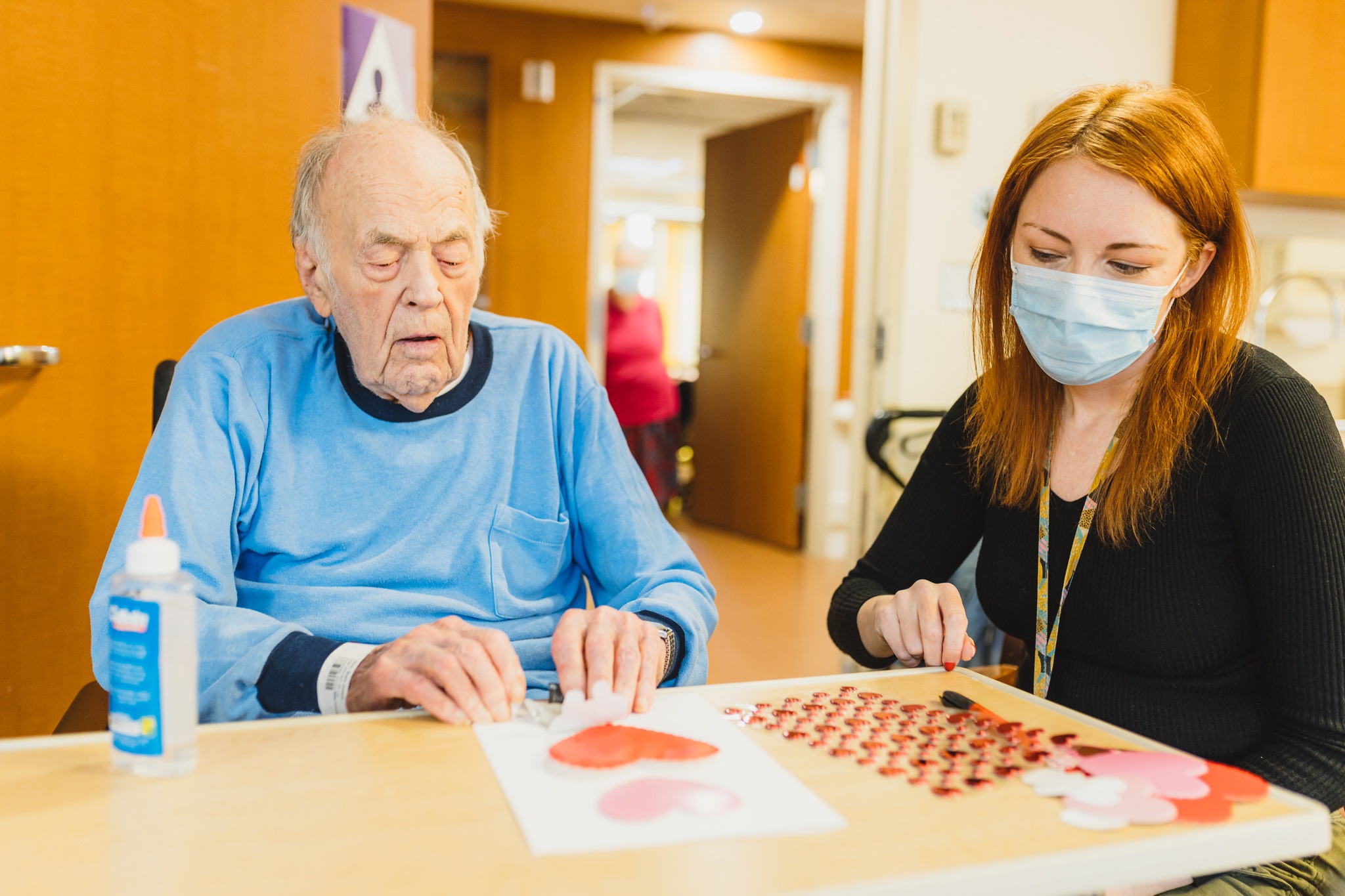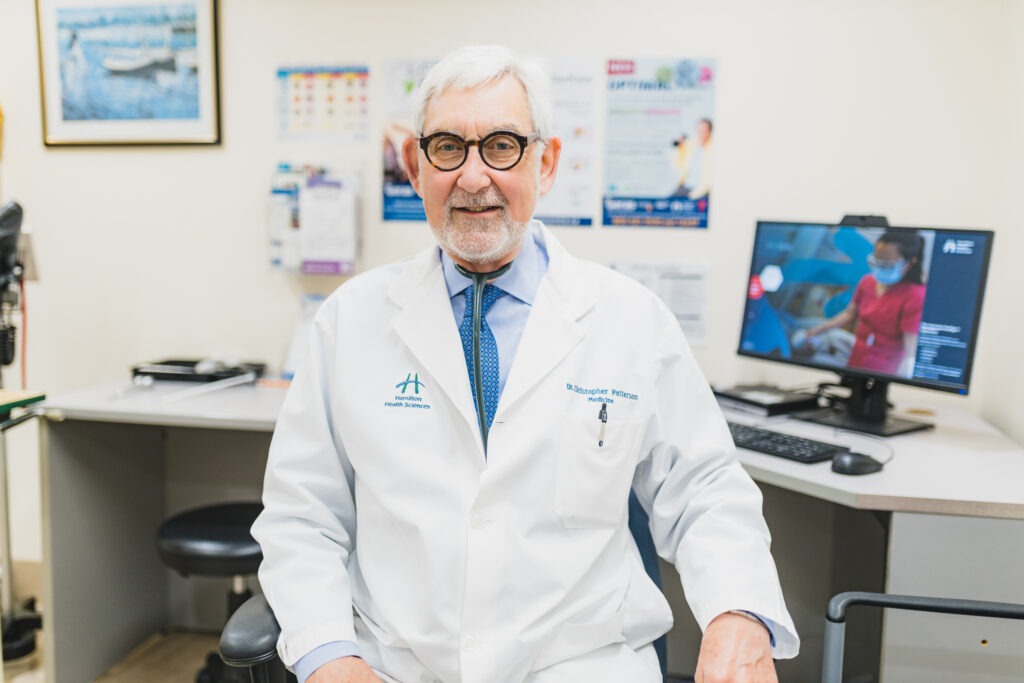
Celebrating Seniors Month with health tips for aging well
June is Seniors Month in Ontario, and this year’s theme is “Working for Seniors.”
With this in mind, we’re pleased to share tips on healthy aging from Dr. Christopher Patterson, a Hamilton Health Sciences (HHS) geriatrician at St. Peter’s Hospital (SPH) and the Centre for Healthy Aging, who has dedicated his career to caring for older adults.
Patterson, a senior himself who is retiring in August, is one of five geriatricians at SPH. These specialists provide expertise in: mind, mobility, multiple morbidity, medications and `matters most,’ which refers to patients’ goals and preferences:
- Mind covers cognitive disorders, memory problems, dementia and Alzheimer’s disease.
- Mobility includes trouble walking or falling.
- Multiple morbidity refers to patients living with multiple health issues.
- Medications are reviewed by geriatricians to ensure they’re helpful and necessary.
- Matters most involves a deep dive into the patient’s greatest concerns. For example, a patient referred to a geriatrician for memory problems may not have dementia or Alzheimer’s disease. Instead, the cause could be depression or anxiety.
Aging well
Anyone who stereotypes older adults as frail and forgetful has it all wrong.
“The truth is, as we grow older we become less like our peers and more individual.” — Dr. Christopher Patterson.
“For example, if you take 100 people, all age 80, they look very different,” says Patterson. “Person A may be completely mobile with normal brain function and no medical conditions while Person B may need to use a wheelchair and have multiple health issues and Person C could be physically fine but with severe mental impairment.”
Only about 30 per cent of longevity is related to genetics, so the very best way to invest in healthy aging is through lifestyle choices like diet and exercise.
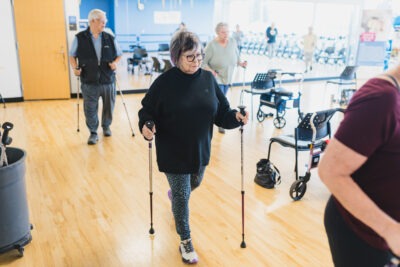
Organizations including the YMCA offer exercise classes for older adults.
Regular exercise: “This is a must for aging well,” says Patterson, adding that a combination of aerobic and resistance exercise is recommended for at least 30 minutes a day. Regular exercise is important for maintaining muscle, strength and bone health, and people who exercise regularly also perform better cognitively.
The part of the brain called the hippocampus plays a major role in learning and memory, and regular exercise increases its size. “In other words, you’re adding nerve connections through regular exercise,” says Patterson.
Mental stimulation, social engagement: Another key contributor to aging well is keeping the mind active through new learning, with `new’ as the secret to success. Socializing regularly with other adults is also hugely beneficial.
Lifestyle and diet: Smokers should make quitting a priority. “Smoking greatly increases the risk of lung and heart diseases as well as doubling the risk of developing dementia,” says Patterson, who also recommends adopting a Mediterranean diet focusing on fresh fruits, vegetables, whole grains, beans, nuts, legumes and lean proteins from fish and poultry, and good fats from olive oil. “The Mediterranean diet is associated with a lower risk of dementia and heart disease,” says Patterson.
Poor-quality carbohydrates, such as processed sugar, are an enemy of healthy aging. Many studies as well as a very large international study led by researchers at the Population Health Research Institute (PHRI) found that a diet high in poor-quality carbohydrates leads to a higher risk of heart attacks, strokes and death. PHRI is a joint institute of HHS and McMaster University.
What does it take to live to 100?
Survivors, delayers and escapers

Three groups of people live long enough to become centenarians, says Patterson. They’re called the survivors, delayers and escapers.
Survivors: Life-threatening illnesses like heart attacks and certain cancers become more common as people age. This is why the province provides free cancer-screening tests for Ontario residents in their 50s, 60s and 70s to check for early signs of breast, colon and cervical cancers. These are examples of cancers that are more common with age, and easier to treat and beat when caught early. Survivors go through treatment, recover and live to blow out 100 candles on their birthday cake. This group accounts for about 43 per cent of centenarians.
Delayers: Delayers eventually develop common age-related diseases when they’re over 80, are successfully treated and go on to live for years afterwards. About 42 per cent of centenarians are delayers.
Escapers: About 15 per cent of centenarians never develop the most common age-related illnesses. “Avoiders somehow manage to sidestep these illnesses completely,” says Patterson.
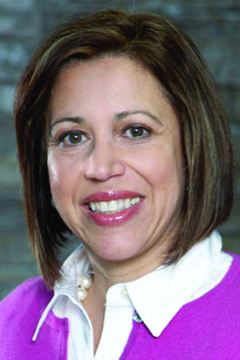
Dr. Alexandra Papaioannou
Dr. Alexandra Papaioannou, executive director of the Geras Centre for Aging Research, added: “Collaborating with outstanding colleagues like Dr. Patterson and having the privilege to care for individuals who reach the remarkable milestone of 100 years of age truly underscores the unique appeal of geriatric medicine.” Geras is part of HHS and is affiliated with McMaster University.
“Geriatric medicine is one of the most rewarding specialties in medicine, offering us profound insights into resilience, longevity, and the art of aging and living well,” adds Papaioannou.
Join a study
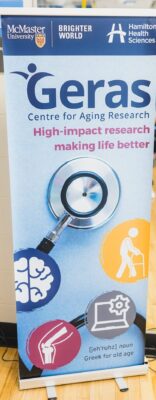
Geras is currently recruiting older adults for a study on aging that could help them live independently at home, for longer.
The OPTIMAL Fitness study was developed by the Geras Centre for Aging Research in partnership with the YMCA of Hamilton/Burlington/Brantford and Upper James Physio. Participation is free. To qualify, participants must be 65 years of age or older and feel that they’re losing energy and strength as they’re aging. Participants can’t be taking part in other group exercise programs or using protein supplements, since this could skew results.
The study is based at the Les Chater Family YMCA on the Hamilton Mountain, with plans to expand to YMCAs in downtown Hamilton, Burlington, Waterdown and Brantford. Anyone interested can call the Geras study line at 905-521-2100 ext. 12437.
Recommend websites
Patterson recommends the McMaster Optimal Aging Portal website for high-quality information about healthy aging. This website is for older adults and their caregivers, health-care providers, public-health professionals and policy makers to access evidence-based information on staying healthy, active and engaged for as long as possible.
Other helpful websites include: Alzheimer Society of Canada and Parkinson Canada.



